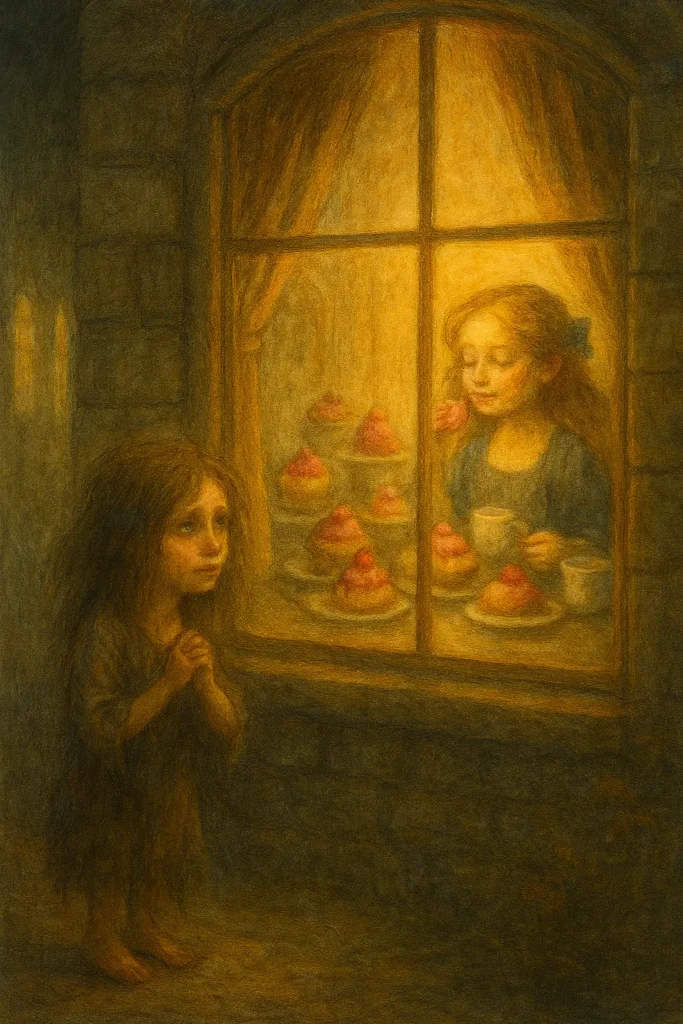There was once a little girl who wore tattered clothes and carried a hunger deeper than her belly.
She lived at the edge of a great city, in the shadow of things she believed she could never have.
Each afternoon, she wandered down the hill to the big stone house with the golden windows.
Inside that house was another little girl.
She had ribbons in her hair and cheeks like peaches, and a table filled with treats—fluffy cakes, honeyed buns, glistening fruit, and warm chocolate that smelled like home.
The girl with tattered clothes would press her face to the glass and watch.
She watched the rich girl laugh, take slow bites, savor each crumb like it belonged to her.
And something in the watching hurt—not just from hunger,
but from the ache of never having felt that safe.
Sometimes, when no one was looking, the poor girl would sneak through the back gate.
She’d steal a pastry or two—quickly, guiltily—shove it into her mouth before anyone could see.
But she couldn’t taste the sweetness.
All she could feel was the burn of shame…
and the bitter aftertaste of envy.
One day, as she reached for another stolen bun,
the rich girl stepped into the garden.
She didn’t yell. She didn’t call for the guards.
She simply looked at the girl with quiet, curious eyes and said:
“You don’t have to steal.
You don’t even have to ask.
Just come in.”
The poor girl blinked. Surely it was a trick.
But the rich girl opened the back door and led her into a sunlit room.
She sat her down at the long table, where warm milk steamed and cinnamon danced in the air.
And then… she taught her.
She taught her how to breathe between bites.
How to let pleasure land in her body.
How to notice the softness of cream, the sparkle of sugar, the way joy settles into the belly when you let it.
And most of all, she said:
“You don’t need to eat quickly.
There’s more than enough.
You don’t have to earn this.
You are worthy just for being you.”
At first, the girl with tattered clothes cried.
Not because she was sad—but because the sweetness finally touched her.
Not just on her tongue, but in the places that had always gone without.
And over time, her clothes didn’t seem so tattered.
Her shoulders relaxed. Her laughter returned.
She still remembered the ache of the window—but now she knew:
Pleasure is not for the chosen.
It is for the willing.
And she had said yes.
